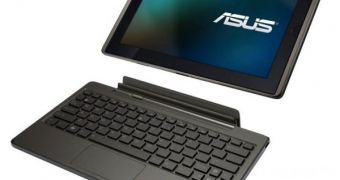It looks like a certain natural disaster that struck a certain country a certain day of last month has begun to make its effects felt now that some tablet PCs are unable to get launched when their makers intended.
Products get delayed all the time on the IT market, but it's not every day that a bunch of products of a certain type get pushed back.
In fact, it takes severe conditions for any move of this sort to be taken on the part of the players that represent a certain industry segment.
One the most recent happenings of this sort came about after Intel discovered the design flaw in the Cougar Point chipset.
Basically, all sales of motherboard and notebooks based on it were halted and those sold were recalled, back in early Q1.
Now, it is reported that a different set of circumstances is forcing makers of tablet PCs to push back their launch dates.
Apparently, the earthquake and tsunamis that hit Japan on March 11, 2011 are making their impact felt upon the IT market.
Shortages of key components, or its possibility during the months to come, have caused companies to revise their plans.
Of course, knowing the weak sales of such models as the Xoom, and the fairly high prices of Android tablets in general, said IT players may be in need of more time to reimagine their configurations anyway.
There is also the fact that Google is unable, right now, to cooperate with very many possible partners in the promotion of the Android 3.0 OS.
Either way, ASUS delayed the 16 GB and 32 GB Eee Pad Transformers until the end of April or May, while HTC pushed its own Flyer back as well, though nothing is clear about its new intended launch time than 'the second quarter.'
HTC did supposedly say that it intends to stick to its roadmap, but no timetable exists for the Flyer eitehr way.

 14 DAY TRIAL //
14 DAY TRIAL //